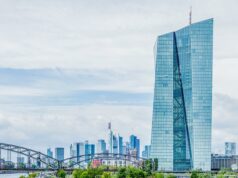When it comes to symbolism, costs are obviously completely irrelevant. The plans of the Danish government to isolate delinquent refugees who can not be deported after serving their sentence despite a final expulsion order on an island in the Baltic Sea promise to be extremely expensive.
According to preliminary calculations by the Ministry of Finance, it will cost the equivalent of more than 100 million euros to decontaminate the „epidemic island“ Lindholm, on which animal tests and research on viral diseases have been carried out for decades, and make it habitable as a „departure center“.
In addition, running costs of at least 240,000 euros per refugee per year would come – provided that the planned camp with 125 people is always fully occupied. The group in question is now housed in Kærshovedgård in Jutland. There, the corresponding costs amount to 34,000 euros per year, around one-seventh of them.
Given that their communities are forced to turn each crown three times, such handling of tax money is „completely insane,“ according to a statement issued on Thursday by several mayors. „A mockery“ commented the daily Information : Millions would be spent only to make the stay as miserable as possible for the people concerned.
Advocate of the taxpayer
Ironically, the rogue populist Danish People’s Party (DF), the driving force behind the concept of the „lonely island,“ otherwise likes to act as a taxpayer’s lawyer. His project was worth the price of the project, Martin Henriksen DF representative in Parliament’s Foreign Policy Committee emphasized: „There we have a lot better control over the people.“
However, as far as the ferry schedule and inmate fare are concerned, they will go „to the limit“ of what international conventions have made possible. Critics fear that given a daily allowance of 4.15 euros, which is now paid out, it would be easy to figure out how easy it would be to make a kind of „Danish Alcatraz“ out of the island, where there is no drinking water, for example how the planned camp is already called internally in circles of the police.
„De facto, these people risk being deprived of their freedom,“ says Pernille Skipper, spokeswoman for the leftist „Unity List.“ The critics of the project also joined Michelle Bachelet, United Nations High Commissioner for Human Rights. „I really have serious concerns,“ she said Wednesday. One knows that „such isolation has negative consequences“. She warned against „stigmatization“ and announced a „dialogue“ with the Danish government.



